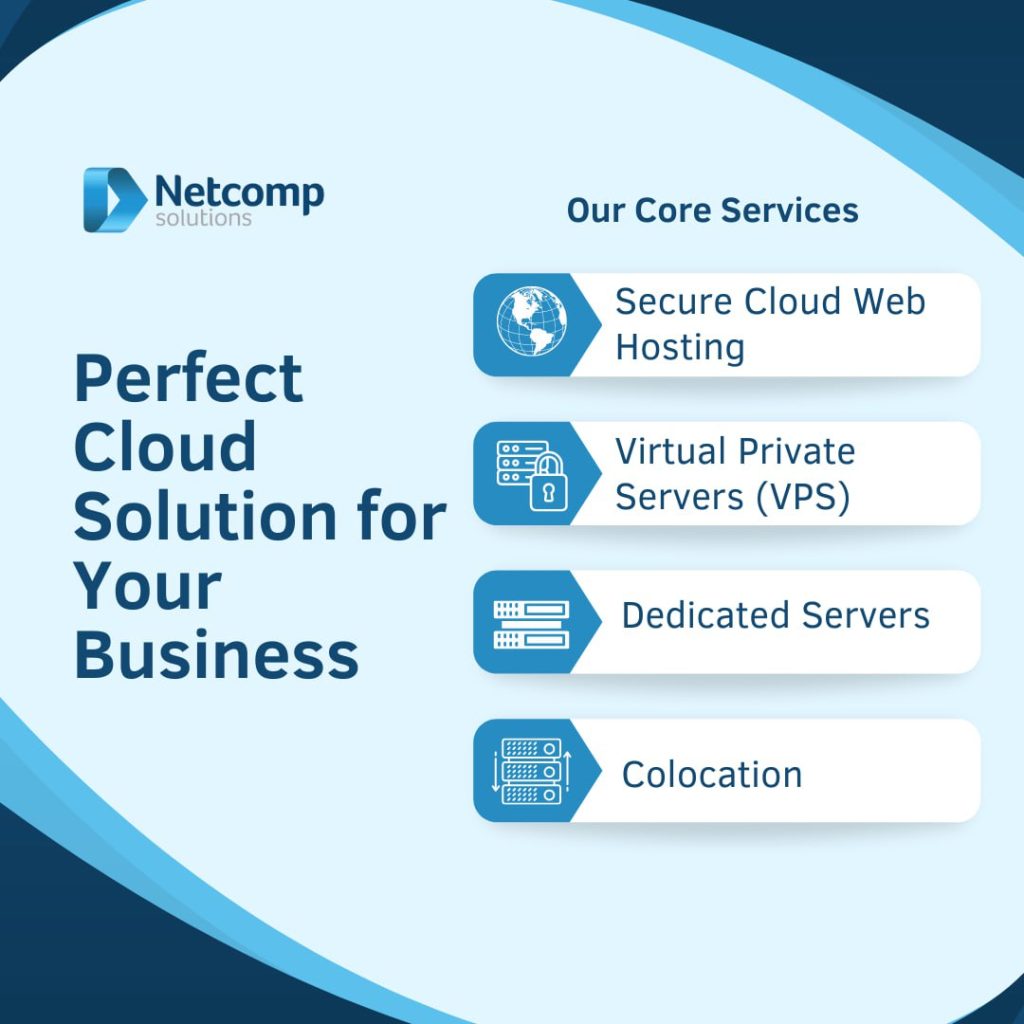Empower your business with our top-tier Secure Cloud Hosting Services – reliable, scalable, and designed for optimal security


Secure cloud computing services keeps your business data safe.
Think of it as a high-security vault in the cloud, with features like encryption to scramble your information, access controls to limit who sees it, and constant monitoring to stop threats.
This lets you focus on running your business with peace of mind.
Microsoft Office 365: Enhances productivity and collaboration
Hosted Virtual Servers: Offers scalable computing resources
Office Cloud Backups: Ensures data resilience and safety
Hosted Enterprise Anti-Spam Solutions: Protects email communications
Antivirus Solutions: Defends against malware and cyber threats
Secure Cloud Hosting Service: Features integrated licensing, private hosting for ERP solutions
World-Leading Cybersecurity Measures: Keeps your business applications secure, efficient, and cost-effective
We offer a wide range of services to keep your business secure and productive. Here are some of our services:



We provide secure, flexible IT solutions that grow with your business. Say goodbye to limited storage and benefit from secure file sharing, automatic backups, and the ability to scale up instantly.
IaaS provides virtualised computing resources over the internet.
It’s a flexible cloud computing model that lets your business scale up or down with demand.
With IaaS, we manage your hardware, servers, and storage, so you can focus on your growth without worrying about physical infrastructure.
Moving beyond the basics, PaaS offers a pre-configured platform for developing, deploying, and managing applications.
PaaS offers several benefits:
SaaS offers a ready-to-use solution for common business needs like email, CRM, or project management. These cloud-based applications are secure, accessible from anywhere, and require minimal setup. Here are the benefits:
There are three main types of cloud computing:
Public Cloud:
This is like using a shared space on the internet. Many businesses use the same resources provided by a third-party service, which makes it cost-effective and easy to scale up or down.Private Cloud:
This is like having your own private space. Only your business uses these resources, which can be managed by you or a service provider. It offers more control and security.Hybrid Cloud:
This is a mix of public and private clouds. It allows you to use both shared and private resources, making it flexible and giving you the best of both worlds.Within these types of cloud computing, there are different services:
IaaS (Infrastructure as a Service):
You get virtual computers and storage over the internet. It’s like renting the basic building blocks for your IT needs.PaaS (Platform as a Service):
You get tools and platforms to create and manage applications without worrying about the underlying hardware. It’s like having a ready-made kitchen to cook your software.SaaS (Software as a Service):
You use software applications over the internet. You don’t need to install anything, just use the software through your web browser, like using Gmail or Netflix.Serverless Computing:
You run your applications without managing the servers. It’s like focusing on your code and the cloud provider takes care of the rest.Choosing the right type of cloud service depends on your business needs, existing technology, and what you want to achieve.
Think of PaaS as a pre-built development environment in the cloud.
It provides everything you need to develop, deploy, and manage your applications – operating systems, databases, development tools – all readily available and secure.
This allows businesses to focus on building applications without managing underlying infrastructure.
SaaS applications are ready-to-use cloud-based software solutions for common business needs like email, CRM systems, or project management tools.
These applications are secure, accessible from anywhere with an internet connection, and require minimal setup or maintenance.
This frees your IT team to focus on core business needs.
IaaS offers the building blocks of a cloud environment – virtual servers, storage, and networking resources.
It provides ultimate flexibility and control, allowing you to build your own secure IT infrastructure in the cloud.
However, IaaS requires significant technical expertise to manage and secure the underlying infrastructure.
There’s no one-size-fits-all answer regarding the best types of cloud hosting. But secure cloud hosting providers invest heavily in security measures across all their service models (IaaS, PaaS, SaaS). Ultimately, the best security option depends on your specific needs. Here’s a breakdown:
The “best” provider depends on your specific needs, budget, and industry.
However, some reliable and secure providers with strong reputations include Cloudways, DigitalOcean and Microsoft Azure.
It’s always wise to research and compare features, pricing, and customer reviews before making a decision.
Secure cloud hosting providers prioritise robust security measures like encryption, access controls, firewalls, and constant monitoring to safeguard your data.
Additionally, cloud data centres often benefit from superior physical security compared to on-premise solutions. However, security is a shared responsibility.
Choosing a reputable provider and implementing best practices like strong passwords helps ensure optimal security.
Colocation involves physically housing your own IT servers and equipment in a secure data centre managed by a provider.
You’re responsible for hardware and software, while the provider handles the physical security, power, cooling, and network connectivity.
Colocation can offer some control benefits, but it requires managing your own hardware and software security.
